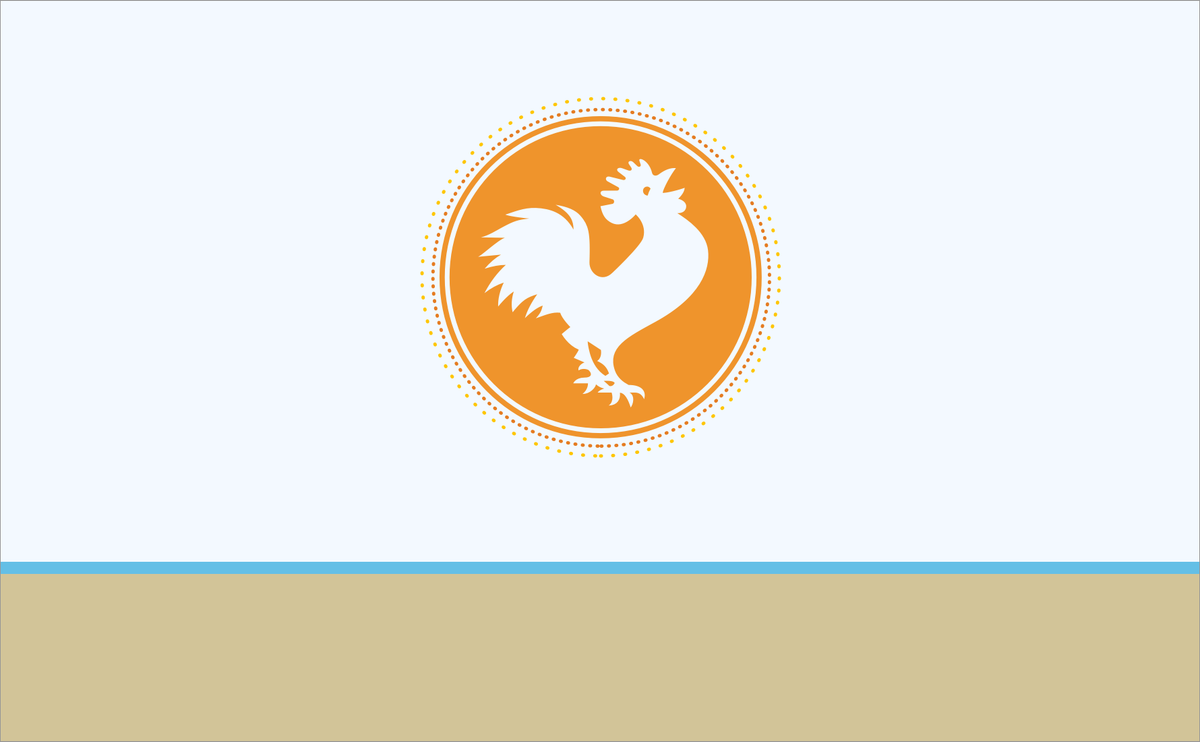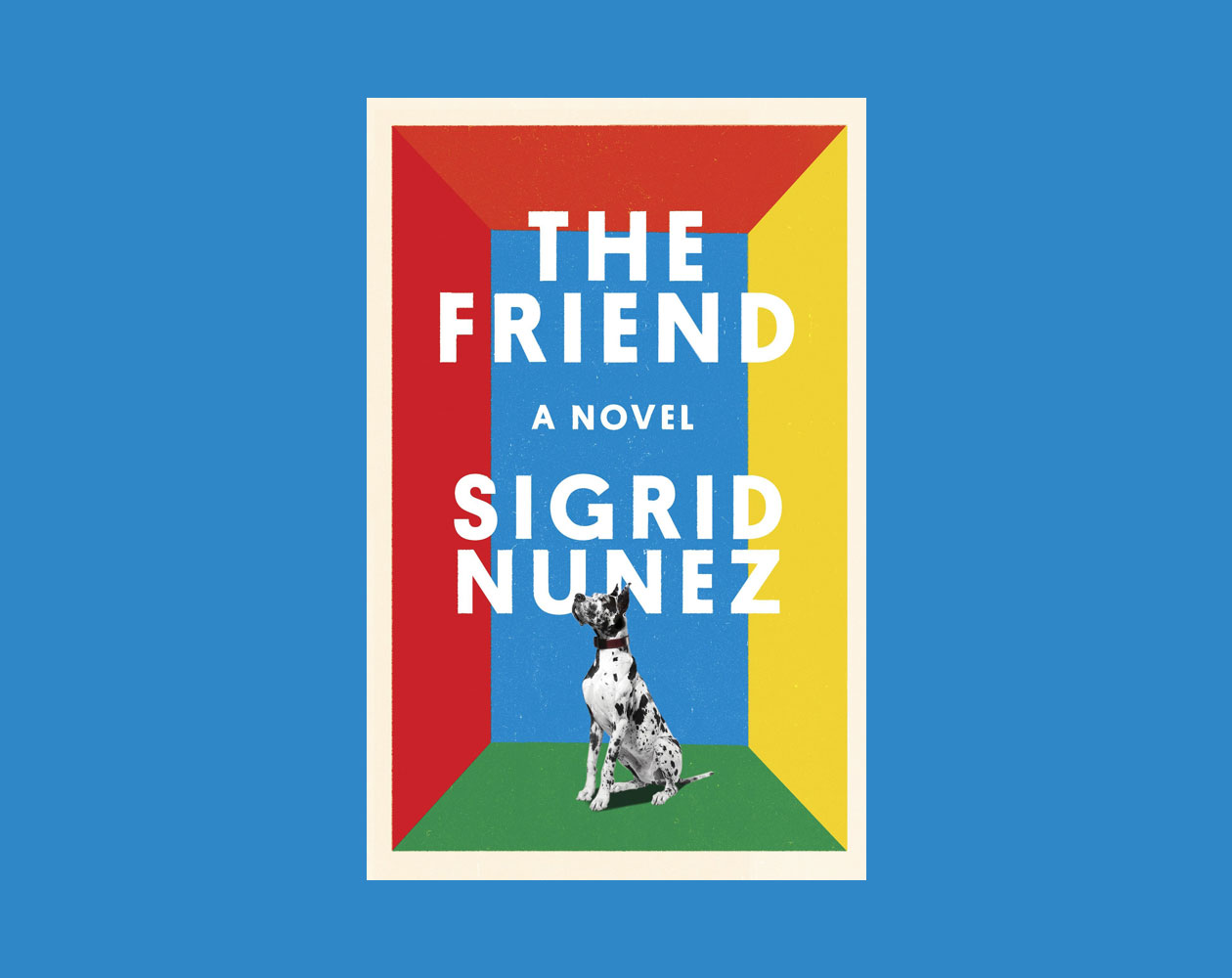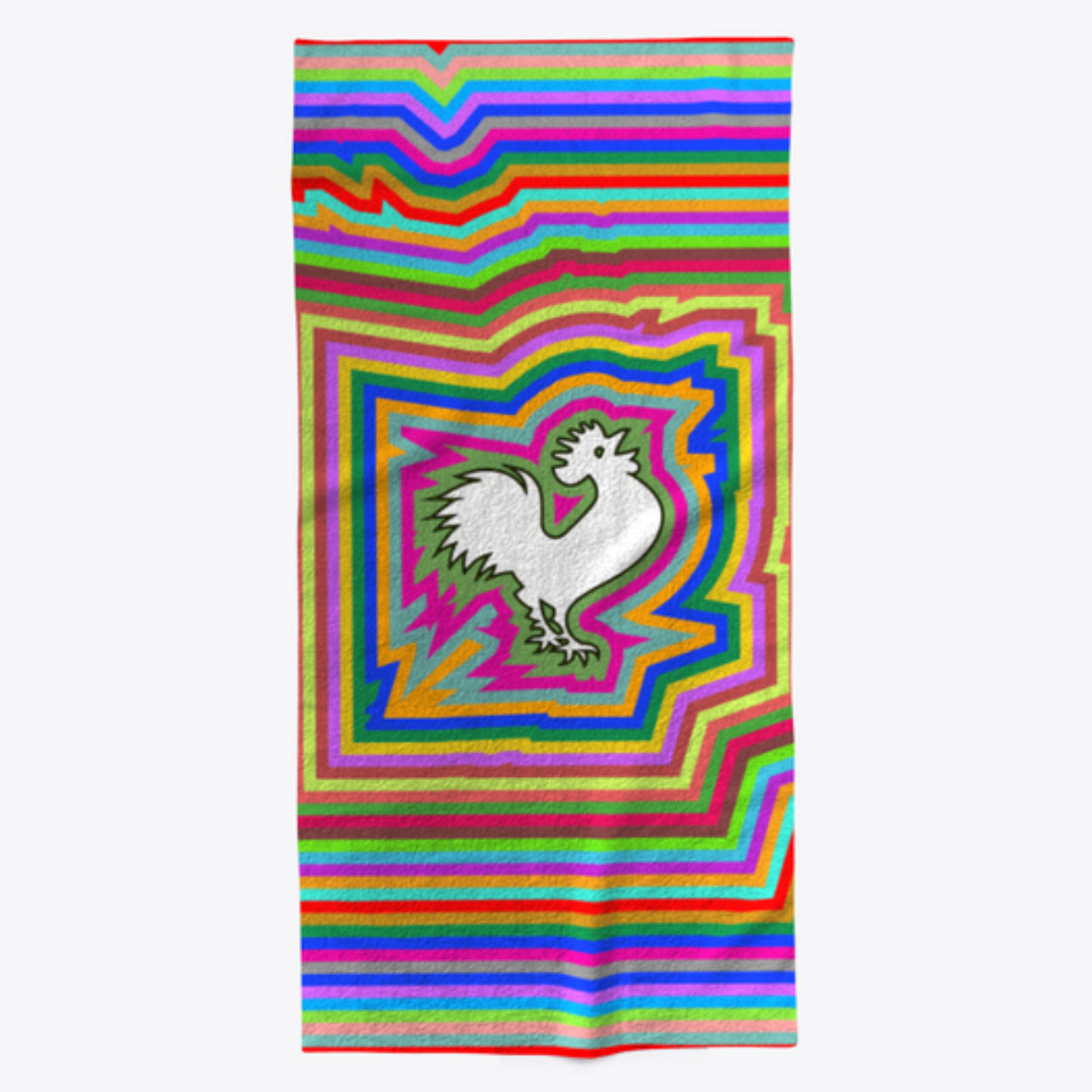The 2018 Rooster Summer Reading Challenge: Week 11
We're in the home stretch of the 2018 Rooster Summer Reading Challenge, as we begin our final book of the season: The Friend by Sigrid Nunez. We’re again joined by our August judge, Emma Straub, in conversation with Nozlee Samadzadeh.

Welcome to the 2018 Rooster Summer Reading Challenge. We’ve selected six Rooster-worthy works of fiction from 2018 to read through August—two per month—and once a week we meet here to discuss our reading progress.
Each month we’re joined by a new judge, who discusses the books with us and then selects which of that month’s two books heads to our summer finale—where you, the readers, decide which novel wins the 2018 Rooster Summer Reading Challenge and an automatic berth in the 2019 Tournament of Books.
(Which kinda counts for a lot, seeing how our 2017 summer winner, Fever Dream, stampeded through the 2018 ToB, eventually taking home the Rooster. By the way, if all of this is new to you, check out this Rooster primer.)
To select our summer books, each of our judges chose a work of fiction they were particularly excited about this year. The other three books were selected by the ToB Committee according to our normal criteria—novels first published in English in the calendar year that we feel are excellent and interesting. (To avoid conflicts, none of the judges were assigned the books they selected personally.)
A special thanks to our Sustaining Members for making another year of the Rooster Summer Reading Challenge possible. Find out why The Morning News and the Tournament of Books depend on your support, and please consider becoming a Sustaining Member or making a one-time donation.
This month we’re reading Kudos by Rachel Cusk and The Friend by Sigrid Nunez, with Emma Straub.
- See the reading list and discussion schedule
- Catch up on previous chats: Tomb Song (first half, second half), An American Marriage (first half, second half), Circe (first half, second half), Census (first half, second half), Kudos (first half, second half)
- Jump into today’s discussion in the comments
Please note: We receive a cut from purchases made through the book links in this article.
Nozlee Samadzadeh: We’re back with our judge, bestselling novelist and Books Are Magic co-owner Emma Straub, to discuss our final book of the summer, The Friend by Sigrid Nunez.
Emma Straub is a bestselling novelist whose books have been published in 20 countries, and the co-owner of Books Are Magic, an independent bookstore in Brooklyn, NY.
Nozlee Samadzadeh is the producer of the Tournament of Books and a developer at Vox Media.
The Friend is narrated by an unnamed woman in New York City and addressed in the second person to her close friend and former teacher, an older male novelist who has just surprised everyone by killing himself. After the funeral, “Wife Three” (in the parlance of the book) begs the narrator to adopt her late husband’s enormous dog, a black and white Great Dane named Apollo. The narrator is a cat person and her tiny rent-controlled apartment doesn’t allow dogs, but “[Apollo’s] large hazel eyes are strikingly human; they remind me of yours”—she takes him home.
Like the other book in this month’s matchup, Kudos, The Friend is a sharply observed book about the literary world, but it chooses to be slightly more compassionate. After describing Wife Three’s excessively groomed appearance when they meet for coffee, the narrator thinks, “It’s not criticism I feel, only awe.” Emma, did you find yourself comparing the book to Kudos, too?
Emma Straub: Good lord, I sure did. It’s the inverse. The bulk of the book is the narrator’s side of a conversation, both with her dead friend and with herself. She is smart and funny and observant and I am so glad to be in her company after leaving Faye on the beach in Kudos.
Nozlee: What do you think of the narrator’s eponymous friend? We hear so much about his love of writing and of fucking, but so little about the substance of his work! (“Now he’s officially a dead white male,” says someone at his funeral.) He appears to have been a cad, in particular to young women in his writing classes, in a way that would not fly in the #MeToo era. The narrator is very tactful about this, both firmly holding the line when he is angry that his female students have asked him to stop addressing them as “dear,” and also understanding that it’s hard to watch your body get older when you don’t feel older inside.

When a woman unexpectedly loses her lifelong best friend and mentor, she finds herself burdened with the unwanted dog he has left behind: a huge Great Dane traumatized by the inexplicable disappearance of its master. While others worry that grief has made her a victim of magical thinking, the woman refuses to be separated from the dog. Isolated from the rest of the world, she becomes increasingly obsessed with its care, and determined to fathom its heart. (Amazon / IndieBound / Powell’s)
Book description excerpted from publisher’s summary and edited for length.
Emma: I have a lot of thoughts. OK.
One. I have very, very little time and space (let alone pity) for old, successful, white, male writers. In that regard, owning a bookstore is kind of like being the goddess ruling over a small planet, where I can change the direction of the tides with a wave of my hand. I feel like that’s what we need across the board, in real life, a redistribution of resources and meaningful opportunities. I so wish that could happen in politics, where someone could just wave their magic wand, and say, you know what, time’s up, mofos, it’s not your turn anymore, and we would immediately have a Supreme Court of nine women and a woman president and a woman vice president. I suppose Emily’s List is that magic wand, among other magic wands, but goddamn I hate how slow reality is… Am I still answering this question? I am!
Nozlee: Don’t stop now!
Emma: Two. I have conversations with my father about this all the time—he is a 75-year-old successful white male novelist—and there are all these things that he complains to me about, literary things, and I say HERE IS WHY THAT IS SEXIST and he says, oh, fine, OK, OK, you’re right. (And my father, I should also say, has always read and loved women writers, and if I were to name his 10 favorite writers, many of them would be women, which is worth noting. That is of course HOW IT SHOULD BE, but there are somehow still men who don’t read women, which makes me want to stick forks into their eyeballs.)
I think that people are products of their time and their environment, and it takes real effort to change your point of view. So I am also sympathetic to the dead novelist, who doesn’t quite understand. I think that’s what the #MeToo critics are missing, that it is simultaneously true that there is room for nuance, and that the line at which nuance matters is well above what previous generations permitted it to be.
Nozlee: AMEN. And thank goddess for the Overton window, which keeps moving even when it feels like the political state of things is heading backwards.
The Friend reminds me so much of Helen Macdonald’s excellent memoir H Is for Hawk. Both books channel grief—for a friend or for a father—through both an animal and minutely researched literary references. In the first 100 pages, Nunez references W.H. Auden, T.S. Eliot, Ursula K. Le Guin, and Adrienne Rich, to pick only a few. I found myself dog-earing pages as much for the narrator’s chestnuts (“how essentially bourgeois contemporary writers are”) as for the authors she quotes. But I can also see how that might turn a reader off. Did it work for you?
Emma: I think that this book is a sneaky crossover between a novel and a writing guide—I love all the quotes and thoughts about writing. I hadn’t read Sigrid Nunez before, but I know that in addition to fiction she has written a memoir about Susan Sontag, and this (a literary friendship) seems like a Subject of hers, the way all of us writers have Subjects that loom large for us, and are recurring obsessions.

Nozlee: Ooh, I’ve read the Sontag memoir, Sempre Susan, and it’s also fantastic—a brainy book about a relationship with a mentor, instead of with an equal as in The Friend. (Shoutout to Emily Books, where it was a featured title back in 2012.)
Emma: The people who read Rachel Cusk and Maggie Nelson and Rebecca Solnit and should also be reading this. People who loved Stephen King’s On Writing should read this! If I’d have known The Friend was like this, I would have picked it up sooner.
But yes, sorry, to answer your question, I think that the perfect audiences for both this novel and Kudos are pretty small in relation to the people on the planet, but not in relation to the number of people who work in publishing/live in Brooklyn/shop in my store/will read this. I think it might turn off a reader who is not remotely interested in the plot of Younger, but I can also tell you that I think Younger is the TV show that I get the most pleasure from, and it’s not just from watching Peter Hermann move through space.
Nozlee: I have thought about binging this show, tell me more!
Emma: For those of you, including Nozlee, who have not yet had the pleasure, Younger is a show about a 40-year-old woman who pretends to be 26 in order to get an entry-level job in publishing, which is of course very silly, but the show is wonderful and perfect and full of details about publishing that make me laugh out loud. Peter Hermann is a handsome actor who has also just written a children’s book about a moose. He is my boyfriend.
Nozlee: I know from Instagram that you’re a cat owner; I myself am an enthusiastic cat aunt. How is it going for you reading a book about a dog who also happens to be a trenchant literary device?
Emma: You know, I truly don’t care about dogs, but Nunez is an excellent writer, and the way this enormous beast is thrust upon the narrator really does work. I was into Apollo. Consider me converted, at least for the length of this novel.
Nozlee: And we’ll be dog people for another hundred pages or so. Join us back here next week to talk about the second half of The Friend, and for the thrilling conclusion to our August matchup, when Emma decides which book will join An American Marriage by Tayari Jones and Census by Jesse Ball for a spot in the 2019 Tournament of Books.
And dog people, cat people, and everyone in between, let us know what you think so far of The Friend in the comments!

The Infinity Rooster finds its way to your beach chair, with a towel you could spot from the breakers. New batches print every three days—order yours now. As a reminder, Sustaining Members receive 50 percent off everything at the TMN Store. To find out why we’re asking for your support and how you can become a Sustaining Member, please visit our Membership page.
Subscribe to the Rooster newsletter
You will receive email from The Tournament of Books. Opt out at any time. (View our privacy policy.)
